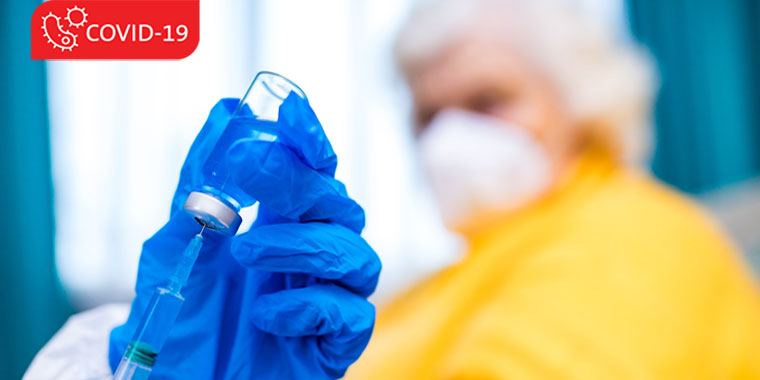Some Hard Truths About the Delta Variant

Answer a few questions and we'll provide you with a list of primary care providers that best fit your needs.
There’s good reason you’re hearing more and more about COVID-19’s Delta variant. Infectious disease specialist Steven Burdette, MD, explains why.
How Contagious Is It?
Delta is 60 percent more contagious than the original COVID-19, says Dr. Burdette. “There is more virus present in Delta than the original COVID-19, so one person can infect more people,” he says. “This is our biggest challenge with Delta and the reason it is sometimes able to infect people who have been vaccinated (called breakthrough cases).”
“Most people who get Delta are contagious for 10 days; the longest we’ve seen is 20 days,” says Dr. Burdette. “And yes, we think it’s possible that you could have Delta and not have any symptoms.”
Severity Of Symptoms
The majority of those who get Delta have mild to moderate symptoms. But because Delta is infecting more people, Dr. Burdette says “we’re absolutely seeing more severe respiratory failure and people needing mechanical ventilation.” Some people begin with mild symptoms, but then they quickly deteriorate and become more severe. “In the hospital we have patients who are stable and then rapidly get worse. That wasn’t the case a few months ago.” That’s why Dr. Burdette recommends that if you know someone who may be sick at home with Delta, you should check on them often to ensure this doesn’t happen to them.
“We’re finding the population getting the most severe symptoms are those who are overweight with a body mass index or BMI of 35 or more. If not vaccinated, these people are at severe risk of respiratory complications; mortality is higher among this group,” says Dr. Burdette.
Even vaccination doesn’t guarantee you won’t get Delta, but your symptoms should be much less severe. “In the hospital, our vaccinated patients have minimal symptoms and are on minimal oxygen. The critically ill are the ones who have not been vaccinated.”
But I Already Had COVID!
If you’ve already had COVID, you’re not in the clear. “Not everyone who gets COVID develops immunity,” Dr. Burdette reports. “About 70 to 80 percent do, the rest don’t. For those who do develop immunity, we don’t know how long it will last.” For that reason, if you had COVID and don’t want to be vaccinated, he suggests you get tested for antibodies. “If the test indicates you don’t have antibodies, then you probably don’t have protection from the virus, and I would suggest you reconsider getting vaccinated.”
The Bottom Line
It’s better to be safe than sorry. Getting vaccinated, wearing a mask, and social distancing are still recommended, especially when indoors and among crowds. But this won’t last forever, predicts Dr. Burdette. “Delta is the same virus that went through the United Kingdom and India a few months ago, then fizzled out. This virus will eventually decrease; we won’t be in this situation forever.” But when Delta is gone, that doesn’t mean COVID will be gone, he adds. “The next variant may be right around the corner.”
Here’s one fun fact about Delta: its name comes from the Greek alphabet. “We used to name variants with letters and numbers. But Delta is much more user-friendly than B.1.37.A.24!” laughs Dr. Burdette.
Answer a few questions and we'll provide you with a list of primary care providers that best fit your needs.
Source: Steven Burdette, MD, Medical Director of Infection Prevention at Miami Valley Hospital





